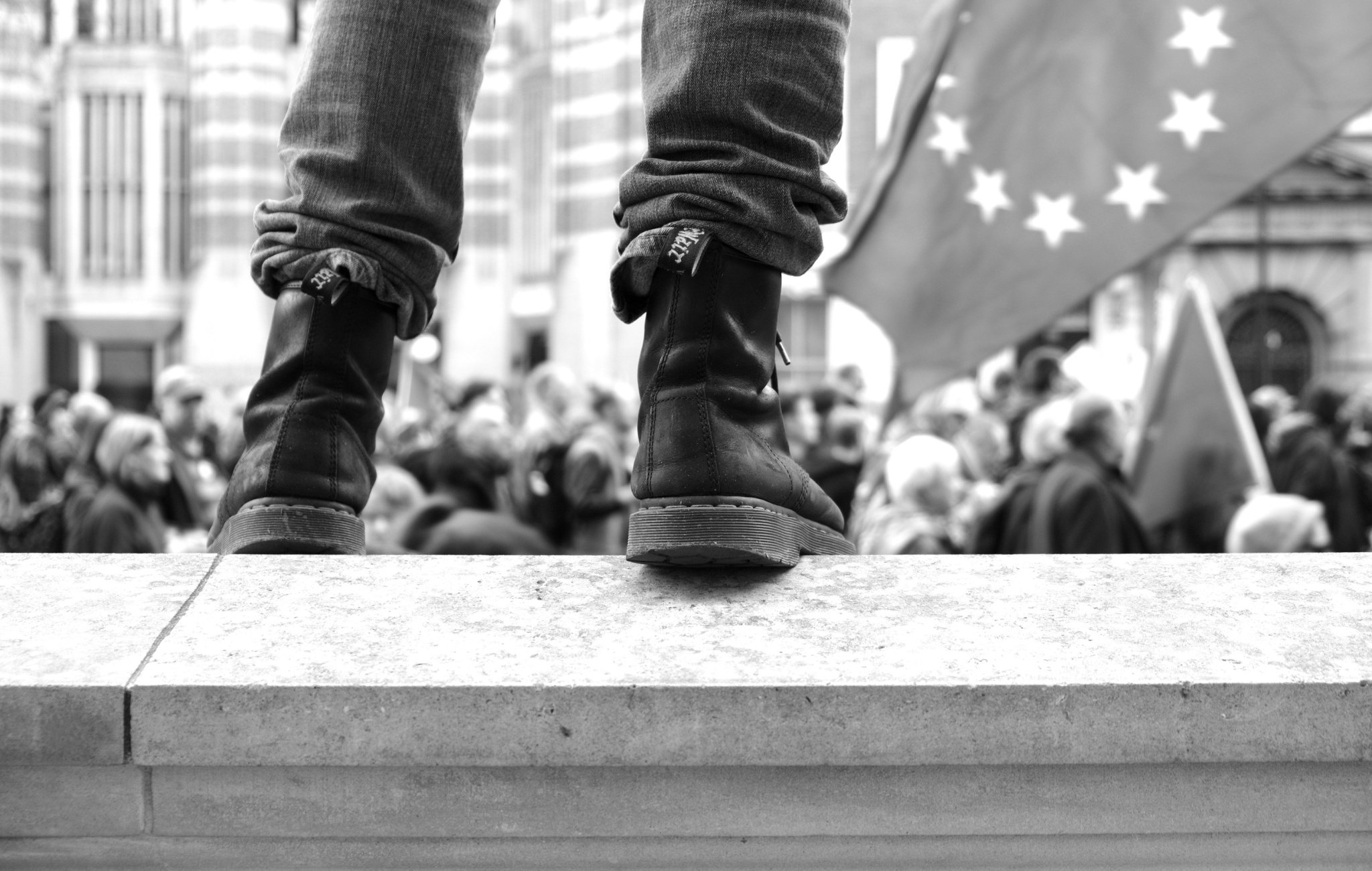
In my acquaintance, a dozen or so people have left for sandier pastures in the Middle East just in the last few years. They all tell a similar story: The exploitative tax pressure in Europe is too much. They can’t stand the entitlement mentality, the bloated bureaucracy, or the woke takeover of all things cultural and intellectual. It’s rarely the case that these Westerners have some affinity for values or the political systems in, say, the UAE, but that the sum package of their existence there — the taxes, the cultural madness they avoid, the energy security, the comparative safety and order of these lands — is judged to be better.
The list of problems in the Old World is long and unending. There’s next-to-no growth, immigration is unchecked — in no small part contributing to the recent European Parliament election results — the fertility disaster is worse here than anywhere else, putting a timer on how long generous and oversized welfare states can feasibly last. The regulatory state and heavy tax burden have Washington politicians drooling in envy. The public “services” are crumbling regardless of how many untold trillions of tax money are thrown at them.
Europe truly is a squabbling museum; no wonder its best and brightest are leaving.
Looking past anecdotes and high-profile examples, the aggregate numbers tell a different story. Less than 3 million people left the EU last year, fewer than half the numbers that arrived from the rest of the world as immigrants (legal or illegal). It’s a trifle, at around half a percent of the EU population. But perhaps Europeans move a lot between the now-27 member states of a union that so ardently tries to mimic America? Nope: Only between a million and a million-and-a-half of the EU’s 450 million or so inhabitants moved to another EU country in recent years. Discount some of us serial country jumpers and it’s obvious that only a small, small minority exercise this ability to vote with their feet.
We’re really not as mobile as one would hope.
Foot voting is awesome, I used to think when I read George Mason professor Ilya Somin’s Free to Move: Foot Voting, Migration, and Political Freedom a few years ago. But for foot voting to work, you have to, you know, move your actual feet now and again. And there needs to be some variability in the lands on offer such that one’s individual desires can be met.
Somin’s case isn’t that moving somehow fixes political problems, just that it’s likely more impactful than the political process. Compared to ballot voting, moving has larger individual impacts, which mean greater incentives to acquire knowledge; it provides a better signal to both the country you’re leaving and the one you’re joining than the average ballot vote — certainly in a two-party system locked in a stalemate.
Moving can also make everyone better off since we like different things, something that domestic political power struggles to achieve. What matters, writes Somin, isn’t residence but “the ability to make an individual decisive choice.” Unlike ballot voting, “the foot voter can make decisions that have a high probability of making a difference.”
What about the independent-minded Americans? The stereotype about the US labor market used to be that families routinely upped and left for better jobs and circumstances a few states over. If some rule, tax, bureaucracy, or politician annoyed you too much, you could hop state lines and avoid dealing with them altogether. While some 8 million Americans moved states last year, Americans are fully one-fifth less likely to move to another state than twenty years ago — with every single region following the same trend toward lower per-capita escapees.
Again, plenty of Americans, no matter how disillusioned they are with the political process or the candidates on offer, see no other way than to stay and fight. “I’m not leaving ever,” said Tucker Carlson passionately on the Lex Fridman show recently, “I’m American in every sense, and my only interest is in America.” Chris Williamson, a British podcaster, routinely sings the praises of his new home in Austin, Texas, to where plenty of other high-profile people like Joe Rogan and Elon Musk have moved in recent years. While a hundred thousand former Californians followed them to Texas in 2022, that’s still a trifle compared to the Golden State’s almost 40 million inhabitants.
For a while during the pandemic, it looked like people were fleeing harsh states for freer ones, a case in point for the foot-voting paradigm. And with different state-level income taxes, sales taxes, rules, and values, there’s at least some variability to consider.
Should I Pack Up And Leave?
For the pros and cons of relocating, I can’t just look at tax rates but instead sum up the full financial and lifestyle bundle of a future country (something that’s almost impossible to do before actually moving). I have to compare costs of living and rank taxes, net of benefits, and adjust for how much I expect to use the publicly provided goods. It might be that most Europeans aren’t moving because all things considered, they’re getting a great deal in the crumbling, elderly, socialistic Fort Europa — or perhaps their preferences are so starkly different from mine.
Add some of the non-governance/-financial things people value — climate, access to nature, air quality, language, food — and a simple-seeming decision quickly gets dicey.
I’m still young enough to consider seriously relocating without too much kerfuffle, but it’s still a costly and overwhelming prospect. If the Argentinian or Salvadorean experiments in liberty start bearing some serious fruits, I would feel morally obliged to support their shift toward liberty with my literal feet, with my presence, and ultimately citizenship. Where else would I want to be but in the very jurisdictions and places that are actually moving in the right directions?
While I pay outrageous amounts in taxes right now (why, any amount is outrageous…), I can’t make the cost-benefit analysis work for, say, Dubai. After having spent just three weeks in large cities in Europe this year, with sunshine and daily summer temperatures of 20-27 degrees C (68-80F) degrees, I’m already dying from the heat. Lord, please return me to the cold, comfort, and peace of 66°N!
While President Bukele’s crackdown on gangs has seen El Salvador’s world-famous homicide rate crumbling to 2.4 per 100,000 inhabitants, that’s still double what I’m used to. However much we may complain about local healthcare, child mortality is twelve times higher in El Salvador than where I live.
Maybe it’s safe, maybe it’s easy, and maybe the bureaucracy is less annoying than the horrors I routinely deal with. Still, you never know which place or places will react favorably to a new or unexpected threat. Asked in 2019 for the best place to ride out a global pandemic, few people would have picked Sweden.
While I’m under no illusions that the socialistic, tax-heavy, central planning mentality of my home will get better in the foreseeable future, the peacefulness of my cold, winter paradise is still the best thing I know — government, taxes, expensive life, and wokeness aside. (Perhaps things just haven’t gotten bad enough yet?)
In time, with a shrinking delta between the sinking European ships and the shining (Latin) American stars, I, too, might be due for a relocation.




